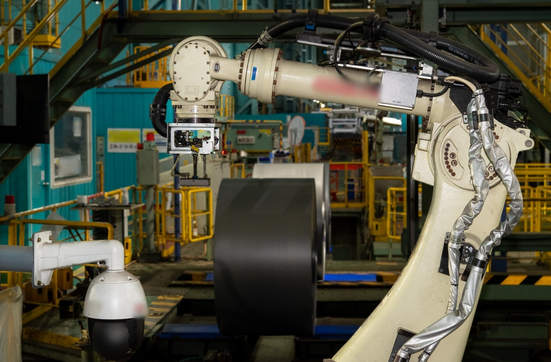
 >
>
>
>
2024.10.30
Posco looks to boost efficiency, safety with smart factories

BY KIM YEONSOO,
Korea JoongAng Daily - Posco is moving forward with its plan to convert its
facilities into smart factories.
It has combined five decades of expertise and field experience with the
internet of things (IoT), AI and big data to construct an optimal production
site equipped with a highly efficient, low-cost fabrication process.
Moreover, Posco is applying steelmaking-specific intelligent technologies to
develop a smart factory — a manufacturing facility that incorporates automated
processes and collaboration among robots.
Posco is also advancing the development of smart technology that integrates
CCTV cameras in the steel plant with AI-powered video recognition technology to
automate previously manual monitoring duties.
The highlight of this technology is its ability to automate simple and
inefficient monitoring tasks while minimizing installation costs.
Fire hazards are commonplace in steel mills. As thousands of conveyor belts
transport raw materials within the factory, friction between the belts and the
materials can ignite a fire. If left untreated in its early stages, a fire can
spread rapidly among the raw materials, causing a massive facility malfunction.
As such, workers constantly monitor the facilities to detect fires, but the
vast inspection territory and the need for around-the-clock surveillance create
difficulties when relying solely on human labor.
To solve this issue, the raw materials factory in Posco’s Pohang Blast Furnace
No. 3 has developed an AI monitoring system that can distinguish between day
and night while detecting smoke or fire. This system monitors for fires in real
time and sends out an alert signal along with video footage if it detects any
abnormal signs. The system was completed in April and is currently in use in
the factory’s operating room.
The Gwangyang steel plant has also implemented an AI-powered quality control
system in its coil packaging line since August. This system aims to ensure that
products meet the criteria set by clients and are shipped to the correct
customers. Preventing mismatches between order details and actual products is
crucial, as such incidents incur not only financial costs for returns and
remanufacturing but also damage trust between the company and its clients.
The system
automatically recognizes labels, silicone pads, bands, barcodes and packaging
materials to determine whether a product meets its requirements. By comparing
client-provided information with the data it detects during inspection, the
system can identify flaws in real time. It sends out an alert when an issue is
detected, allowing for a swift response.
From automating
manual tasks to monitoring operational conditions and product quality, Posco
will continue to lessen the burden on its workers with its AI-backed CCTV
cameras, improving productivity and profitability while strengthening its
foundation to fully establish a smart factory.